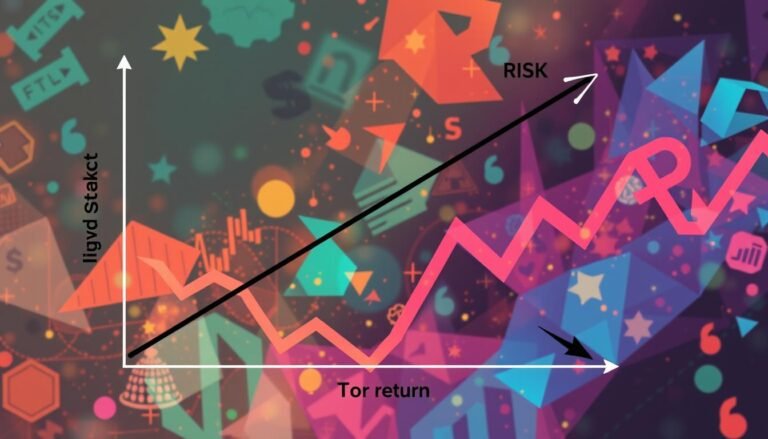Microdosing: Benefits and risks of microdosing psychedelics for mental health.
Are tiny amounts of psychedelics a new way to help with mental health issues, or is it just in our heads? More people are trying microdosing psychedelics for their mental health. We need to look closely at the facts to see if it really works or if it’s just a fad.
This article will look into the good and bad sides of microdosing. We’ll use science to see if it’s a real way to help with mental health or just a myth.
Key Takeaways
- Microdosing involves taking only 1% of the active dose of a drug.
- 21% of people use microdosing primarily to treat depression, 7% for anxiety, and 9% for other mental health disorders.
- 44% of respondents reported significant improvements in their mental health due to microdosing.
- An observational study involving 950 individuals showed small to medium-sized improvements in anxiety, stress, and depression.
- Microdosers generally reported higher past year substance use but lower rates of substance use disorders compared to non-microdosers.
- Psilocybin is the most commonly used substance for microdosing, reported by 85% of participants in studies.
- The legitimacy of microdosing benefits versus placebo effects remains scientifically undecided.
What is Microdosing?
Microdosing means taking small amounts of psychedelic substances to boost mental states and thinking skills. It doesn’t make you feel fully psychedelic. People like it because it might make them happier, more focused, and more creative.
Let’s dive into what a microdose is, the substances used, and why people do it:
- Typical Microdoses: A microdose of LSD is about 10 µg, much less than the usual 100 µg. For psilocybin mushrooms, a microdose is 0.2 to 0.5 g, way less than the full dose of 2.5 g.
- Common Psychedelics: LSD and psilocybin are top choices for microdosing. But, people also use Mescaline/Peyote, Ibogaine, MDMA/Ecstasy, and Ketamine for this purpose.
- Intended Benefits: Microdosing could help with mood, sleep, focus, and confidence. Some say it boosts creativity and lowers depression and stress. Studies show some people feel better after doing it.
But, we don’t know for sure if microdosing really works. Some benefits might just be in people’s heads. And, it could be risky, especially for those with mental health issues.
Here’s a table with more info on microdosing.
| Aspect | Details |
|---|---|
| Anecdotal Benefits | Improved mood (26.6%), increased focus (14.8%), reduced depression and stress over six weeks. |
| Potential Risks | Increased neurosis, flashbacks, physical discomforts, impaired focus, increased anxiety. |
| Common Substances | LSD, Psilocybin (Magic Mushrooms), MDMA, Mescaline/Peyote, Ketamine. |
| Typical Microdose Amount | LSD: 10 µg, Psilocybin: 0.2-0.5 g. |
| Medical and Legal Status | Microdosing isn’t approved by doctors and some substances are banned by law. |
It’s important to understand microdosing well before trying it. Knowing the good and bad sides can help you see what it’s all about.
Therapeutic Benefits of Microdosing Psychedelics
Microdosing means taking a tiny dose of psychedelics, just a tenth of what causes hallucinations. This small dose has big benefits for mental and cognitive health.
Improved Mental Health
Studies show that microdosing can really help with mental health. People taking LSD or psilocybin felt less stressed and anxious. Esketamine is the only legal psychedelic for treatment-resistant depression. Regular microdosing could make people feel better and less negative.
Enhanced Cognitive Function
Microdosing might make you think better, too. People who tried it said they solved problems faster and thought more creatively. While the evidence is still growing, it looks promising for better thinking skills.
Increased Creativity and Focus
Microdosing could also make you more creative. On LSD days, people felt more creative and full of energy. Surveys show it helps with creativity, being open-minded, and focusing better. This is great for jobs that need new ideas and solving tough problems.
Quitting Other Habits
Microdosing might even help you stop bad habits. Stories from users say it helps clear the mind and lowers stress, making it easier to quit addictions. But we need more studies to be sure about this.
| Benefit | Reported Effects |
|---|---|
| Mental Health Improvement | Reduced Depression, Anxiety, and Stress |
| Cognitive Enhancement | Improved Problem-Solving Abilities and Mental Flexibility |
| Creative Productivity | Heightened Creativity, Open-Mindedness, and Focus |
| Habit Cessation | Support for Overcoming Addictions and Dependencies |
Mood Disorders and Microdosing
Microdosing psychedelics is getting a lot of attention for its possible benefits in treating mood disorders. It could help reduce depression and anxiety symptoms. This approach is seen as a new way to support traditional mental health treatments.
Microdosing for Depression Therapy
Studies show that microdosing could be helpful for depression. The 2021 Global Drug Survey found that one in four people tried psilocybin mushrooms or LSD for microdosing. Those who did reported feeling less depressed, anxious, and stressed than those who didn’t.
Older adults showed big improvements in mood and how well they moved. With 953 microdosers aged 55 or older, the results were clear. Microdosing could be a new way to help with microdosing depression alleviation, making traditional treatments better.
Anxiety Treatment Through Microdosing
Anxiety disorders also seem to benefit from microdosing. The 2021 GDS showed that about a third of users tried other psychedelics besides psilocybin or LSD. These users felt less anxious.
A 2019 study also found less depression and stress in microdosers. Women in this study saw a bigger drop in anxiety.
- Decreased Depression Symptoms: Consistent reductions in reported depressive symptoms.
- Enhanced Focus: Short-lived but noticeable increases in focus.
- Mood Improvement: Overall mood enhancement, contributing to lower stress and anxiety.
These results are promising, but we need more research to fully understand how microdosing helps with anxiety treatment and mood disorders.
| Psychedelic Substance | Reported Benefits | Study Participants |
|---|---|---|
| Psilocybin | Decreased depression and anxiety levels | 900+ |
| LSD | Improvement in mood and focus | – |
| Other Psychedelics | Reduction in stress symptoms | One-third of users |
Even with these positive signs, it’s important to use microdosing with a professional. This helps avoid risks and ensures it’s part of effective mood disorder therapy.
Scientific Research on Microdosing
Recently, there’s been a lot of interest in studying psychedelics, especially psilocybin. Many studies aim to understand how it affects mental health, mood, and thinking skills.
Psilocybin and Escitalopram Trial
A key study compared psilocybin with escitalopram, a common antidepressant. Researchers found that short-term use of psilocybin had some effects that went away. But, after a while, it seemed to help with depression, stress, focus, and even made some feel more anxious.
This study hints that psilocybin might be as helpful as traditional antidepressants. But, we need more research to be sure.
Placebo Effect Studies
The placebo effect is important when looking at how well microdosing works. Kaertner et al.’s study showed that people expecting benefits from microdosing felt better, were more stable, and had less depression. Hutten et al.’s study found people took it for better performance, mood, and to ease symptoms.
We need more studies to tell what’s real and what’s just in people’s heads when it comes to psilocybin.
Anecdotal Evidence and Self-Reporting Bias
Stories from people who try microdosing and their own reports bring challenges to research. Johnstad’s study found it helped with anxiety and made people think and be more creative. But, the varied reports make it hard to know what’s true.
We need more careful studies to check if these stories are real or just in people’s minds.
Potential Risks of Microdosing Psychedelics
Microdosing psychedelics has become popular, but it’s important to know the risks. Some people may experience anxiety, trouble focusing, or uncomfortable feelings. Those with a history of psychotic disorders might find it too intense or dangerous.
A study on rats showed that males gained a lot of weight, while females had less brain cells. This shows psychedelics can affect people and animals differently. More studies are needed to understand these effects better.
Some research found that 18% of people felt bad physically, and 6.7% got more anxious. Yet, 26.6% felt happier, and 14.8% focused better. These results show we need to be careful and consider each person’s experience.
Many psychedelics are still illegal, which can be risky and hard to access. Oregon has made psilocybin therapy legal in some settings, but it’s not everywhere. This makes it hard for people to try it safely.
Studies on rodents didn’t show big improvements in thinking skills or getting along with others. But, DMT did help some rats overcome fear and anxiety related to PTSD.
To sum up the data, here’s an insightful comparison:
| Parameter | Positive Outcomes | Negative Outcomes |
|---|---|---|
| Improved Mood | 26.6% | – |
| Enhanced Focus | 14.8% | – |
| Physiological Discomfort | – | 18.0% |
| Increased Anxiety | – | 6.7% |
In conclusion, microdosing psychedelics has some benefits but also risks. We need more studies to understand these risks before it can be a safe treatment option.
Legality and Ethical Considerations of Microdosing
The world of microdosing psychedelics is filled with microdosing legal aspects and ethical considerations. These substances are mostly illegal, seen as having no medical use, and a high abuse risk. Yet, research shows they could help with mental health, leading to a big debate.
Current Legal Status
Psychedelics like psilocybin are banned in most countries, but not in Jamaica and the Netherlands. In the USA, they’re hard to get due to strict laws. Oregon has made psilocybin legal, and Canada lets Health Canada approve psilocybin for therapy. This shows how different countries handle psychedelics.
Ethical Implications
There are many ethical issues to consider with microdosing. It might help mental health, but it’s not easy to get. People in poor areas face big risks and don’t have access. The high cost of trying it out makes it worse for those who are already behind.
Fixing these issues is key to fairness. With so many Americans struggling with mental health, microdosing could be a new solution. But, we must handle its microdosing legal aspects and ethical considerations carefully.
Long-Term Effects and Safety Concerns
Microdosing psychedelics like LSD and psilocybin is becoming more popular. But, we need to understand its long-term safety. There are few scientific studies on this topic. This is because of legal and ethical issues.
These issues make it hard to fully understand the effects and risks of microdosing.
Cardiac Health Risks
There are concerns about the heart’s health with microdosing. Using psychedelics too much might cause heart problems. This happens when serotonin receptors in the heart get too active.
This can damage the heart valves. Experts suggest taking breaks from microdosing to avoid this. They recommend resting for a few weeks to lessen the risk.
There is still a lot we don’t know about using psychedelics over time. More studies are needed.
Mental Health Precautions
There are also worries about mental health with microdosing. Some people feel less anxious and depressed. But, some might feel more anxious or have mood changes.
There are also negative effects, like headaches and feeling more neurotic. If you have mental health issues, be very careful. You should talk to a professional before trying it.
Also, be careful where you get your psychedelics from. Not all sources are safe or trustworthy.
Conclusion
Our look into microdosing psychedelics shows it could be a big step forward for mental health. Studies and surveys have shown it helps with mental well-being, boosts creativity, and improves focus. This highlights the potential and the challenges of this new area.
Research by Polito and Stevenson, along with web surveys by Kaertner et al., shows microdosing can have big effects on the mind. But, some results might be due to the placebo effect. Still, studies by Johnstad, Hutten, Webb, Copes, and Hendricks show real mental health benefits. This shows that those who microdose do it for health reasons, not just fun.
Even with a bright future for microdosing in mental health, many questions still need answers. While many stories and surveys are positive, research points out risks like more anxiety and the placebo effect. As places like Australia and Oregon consider legalizing medical psychedelics, we must keep researching to protect public health and safety. We need more research to prove that microdosing could be a good way to help mental health. The path forward will require careful study and expert advice to use psychedelics wisely.
Source Links
- Microdosing: Definition, benefits, and risks
- Adults who microdose psychedelics report health related motivations and lower levels of anxiety and depression compared to non-microdosers – Scientific Reports
- Microdosing Psilocybin: The Pros, Cons & Unknowns | HLR
- Microdosing: Everything You Need to Know
- The benefits of microdosing mushrooms — what the research says
- Microdosing: The Supposed Benefits and Potential Risks–Part 2
- Potential Health Benefits of Microdosing Psychedelics
- Comprehensive Study Finds Microdosing Boosts Mental Health
- What Is Microdosing and Can It Help Mental Health?
- Microdosing Psilocybin Mushrooms May Improve Mental Health and Mood
- Microdosing: Potential Benefits, Risks, and Current Research
- Can microdosing mushrooms reduce anxiety, depression, and stress?
- Experiences of microdosing psychedelics in an attempt to support wellbeing and mental health
- Psychedelics: Risks and benefits of microdosing revealed
- Psychedelic microdosing benefits and challenges: an empirical codebook – Harm Reduction Journal
- What Is Microdosing? Here’s Everything You Need to Know – GoodRx
- Restricting Access to Microdosing is Morally Wrong – Bill of Health
- Microdosing Psychedelics Might Improve Mental Health
- Ethical and legal issues in psychedelic harm reduction and integration therapy – Harm Reduction Journal
- The Effects and Dangers of Microdosing | Harmony Ridge Recovery Center WV
- Motives and Side-Effects of Microdosing With Psychedelics Among Users
- Microdosing psychedelics has benefits, users say. Science isn’t convinced.
- Exploring the Benefits of Microdosing Psychedelics for Mental Health – Ketamine Research Foundation
- Managing expectations with psychedelic microdosing – npj Mental Health Research







